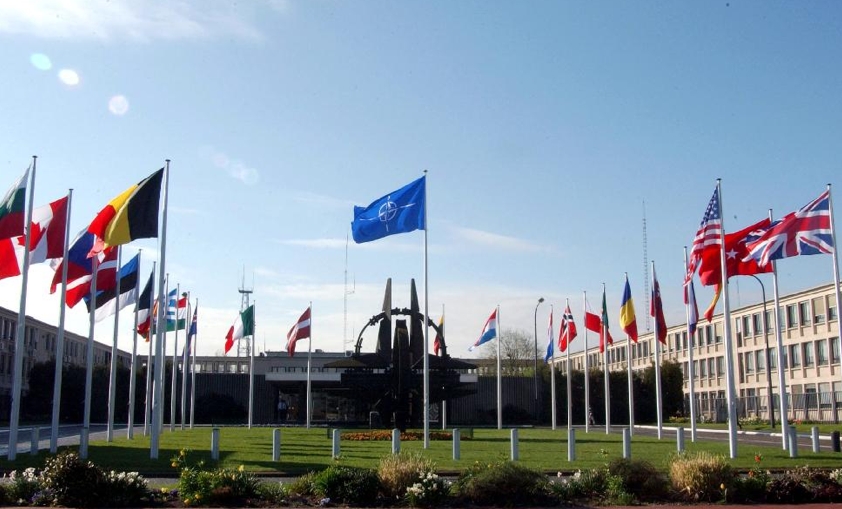05.01.2014 - 13:24
Prime Minister Artur Mas explicitly confirmed Catalonia is seeking NATO membership. In a recent interview with the Italian daily La Reppublica, Catalan Prime Minister Artur Mas explained that an independent Catalonia sees herself at the heart of NATO. This is in line with Catalonia’s commitment to the international community, the principle of collective security, international law, and the rule of law at sea. It is also compatible with a healthy, intense relationship with Russia. Along the same lines, in his 20 December letter and memorandum to world leaders, Mas also stressed Catalonia’s commitment to collective security and “common defence”, as well as the country’s goal “to be a main actor in the Mediterranean”, stressing that “there will be no Catalan security gap”.
Catalonia seeks freedom, not to avoid the inescapable responsibilities that come hand in hand with it, but to fully exercise them side by side with partners and allies. Catalans understand fully that freedom never comes without cost, and that whereas independence means government of the people, by the people, and for the people, instead of alien rule, it also means that they will not be able to look the other way when a crisis or challenge arises. They understand that when the next Afghanistan comes, Catalan blood will also be spilled.
No scope for a Spanish veto in the Atlantic Alliance. Unfortunately there have been some threats by Spanish politicians that Catalan independence will mean exclusion from the EU and NATO and the need to reapply and face Madrid’s veto. This is clearly nonsense, for a number of reasons. Leaving aside NATO’s strong interest in having Catalonia onboard, not least because of her strategically located harbors, and the doctrine of state succession in international law (which, as always, can be the object of different, legitimate interpretations), there are three basic facts we cannot ignore: First, Spain is in no position to service her national debt unless, on leaving, Catalonia takes over a portion. Second, key countries face a heavy exposure to that national debt. Third, a Spanish default and exit from the euro would threaten the very survival of the EU’s common currency. Do we need to add anything else? As anybody can imagine, the EU and the international community are simply not going to allow Spain to cause any trouble, Catalan recognition by Madrid will be swift and there will be no vetoes.
Catalonia looks forward to a “normal” Spain contributing to NATO. In saying that Madrid is impotent to block Catalan accession to NATO, we are not wishing Spain any ill. On the contrary, Catalonia is the first country to look forward to a “normal” Spain. What does this mean? In the field of security and defence, it means a Spain no longer threatening to employ force against those who want out (Catalonia) and those who do not want in (Gibraltar) and instead devoting her capabilities to contributing to NATO and the national security of maritime democracies. Only once Madrid ceases and desists opposing the ballot with bullets will the Spanish military become a truly professional force and the country a security provider. While losing territory is always painful, as is seeing territories repeatedly refuse integration, any sincere Spaniard must understand that trying to retain or take over a nation by force is incompatible with making a meaningful contribution to the Atlantic Alliance, collective security, and world-wide peace and stability. It is no coincidence that the UK, which allowed a self-determination referendum in the Falklands last year and one in Scotland in 2014, is a much better NATO partner. There may be many reasons for this, but without a doubt one is that the British military have no role in politics and waste no time in threatening civilians. Instead, they train to the highest standards.
NATO is unlikely to deviate from the EU’s decision in favour of the Mediterranean Corridor. There are many reasons why the Atlantic Alliance is strongly interested in counting on independent Catalonia among its ranks. Not least of which is her key geographical position. Late last year the European Union confirmed the “Mediterranean Corridor”, linking Gibraltar and France though the Spanish Mediterranean coast, Valencia, and Catalonia, as a key infrastructure, and making its completion compulsory under EU law. There is no reason to believe that the same grounds for this decision are not relevant in the security sphere. We are talking about an area, the Western Mediterranean, acting as a bridge between the Atlantic and the Mediterranean, Europe and North Africa. Securing it is an essential requirement for guaranteeing the security of the whole of NATO. Furthermore, projecting naval and air power requires top class logistical support facilities, the same dual-purpose facilities the EU has decided are essential for the civilian economy. At a time of growing pressure on defence budgets, it would be unrealistic to expect NATO and the EU to support different logistical axis.
Conclusions. In a matter of a few weeks, Catalan Prime Minister Artur Mas has publicly confirmed independent Catalonia’s commitment to NATO, collective security, peace and security, and the rule of law at sea. Both in his interview with Italian daily La Repubblica, and in his letter and memorandum to world leaders, he has made this clear. At the same time, growing pressure on defense budgets, and European NATO members’ duty to reinforce logistics and secure the Mediterranean in order to support the US Pivot to the Pacific and the struggle for the rule of law at sea in the Indian-Pacific Ocean Region, means that NATO is bound to follow the EU’s lead and choose to support Catalan ports. Barcelona and Tarragona Harbours are thus poised to become the tip of the spear in an independent Catalonia’s contribution to the Atlantic Alliance.
Alex Calvo is a guest professor at Nagoya University, Pol Molas is a naval analyst at the Center for Strategic Studies of Catalonia (CEEC)





